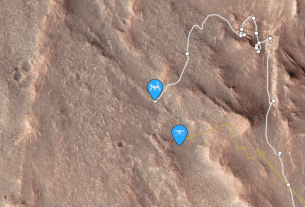Initially, the acquisition of the European market leader for DECT (Digital Enhanced Cordless Telecommunications) telephones should be considered positive. The opening of insolvency proceedings under autonomous administration, announced in September 2023, now seems to have been averted. As a result, the 850 employees are now likely to have hope of continuing to work.
Announcement
As usual with acquisitions, the two parties initially emphasize the resulting synergy effects, including cooperation in research and development, but also the expansion of global sales channels and product portfolios as well as the strengthening of the presence production in Europe. VTech acquires land, patents, technical equipment and supplies for the production of landline telephones.
But: will production remain in Europe, more precisely in Bocholt in North Rhine-Westphalia, in the medium to long term? Considering the relatively high personnel and production costs in Germany compared to China, this is extremely questionable.
As early as 2013, Hong Kong investor Pan Sutong held the majority of voting rights in Gigaset AG via acquired Goldin Fund Pte. Ltd.. In 2016, VTech acquired the Berlin-based VoIP pioneer Snom, which is well-known in the corporate world. According to Gigaset, the current acquisition is expected to be completed on April 2, 2024.
Market dependence
In general, the entire telecommunications market is currently in a state of upheaval. Classic EU telecommunications manufacturers often have to accept acquisitions. This is demonstrated, for example, by the acquisition of Unify (formerly Siemens Enterprise Communications) by the Canadian Mitel at the end of 2023. Alcatel-Lucent Enterprise has also been controlled for several years by the Chinese investment company China Huaxin. But Chinese investors aren’t even stopping at new manufacturers like Snom.
At the same time, more and more users are switching to cloud telephony solutions from hyperscalers, such as Microsoft Teams Telephone, but also Webex or Zoom Calling from Cisco. The Corona pandemic and the increasing use of Microsoft 365 services and integration with Teams have further strengthened this trend.
also read
You need to do a bit of research into the big German telephone operators and phone manufacturers. For cloud-based telephone systems, for example, the NFON in Munich or the Innovaphone in Sindelfingen are currently available for operation on-premise or in the cloud. In addition to software solutions, it also develops its own corded phones for corporate customers.
In the DECT environment, where Gigaset is a heavyweight, the market in the EU is becoming small. Many manufacturers buy from Chinese manufacturers like RTX. Swiss Ascom is still represented in the business customer environment and in the multi-cell DECT sector.
Now one could argue that DECT is obsolete, but it is not, because it has its justification for many uses, for example in hospitals or nurseries. Voice over WLAN has failed to establish itself, at least in Germany, due to infrastructure challenges such as range, delivery requirements and battery life of the devices.
Outlook AVM
In the context of the Gigaset takeover, the big question now arises about a potential takeover of the Berlin company Fritz!Box AVM. At the end of 2023, the Handelsblatt reported that the current owners were thinking of selling and that there was great interest from investors. Is there a risk of a sell-out to China here too? This would do a disservice to digital sovereignty in Germany and hamper the efforts of federal governments, for example in the area of subsidized chip production.
(fo)




